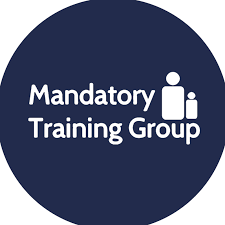Our Basic Life Support (BLS) Practical Refresher Training Course is designed to equip healthcare professionals and non-clinical staff with the critical skills to recognise and respond to life-threatening emergencies.

Course overview
Our Basic Life Support (BLS) Practical Refresher Training Course is designed to equip healthcare professionals and non-clinical staff with the critical skills to recognise and respond to life-threatening emergencies.
Delivered by expert trainers, this course focuses on both Adult and Paediatric Life Support, ensuring comprehensive coverage for professionals working across different patient demographics. The training is aligned with the latest Resuscitation Council UK Guidelines and the UK Core Skills Training Framework (CSTF), meeting NHS, CQC, and other regulatory requirements.
This face-to-face, classroom-based training offers hands-on resuscitation practice and scenario-based learning, ensuring you leave with the practical skills and confidence required to respond effectively to emergencies.
What the course covers
The course covers a range of critical topics necessary for effective resuscitation:
National and local guidelines - In-depth review of Resuscitation Council UK guidelines and local policies.
Clinical deterioration - Early recognition of clinical deterioration in both adult and paediatric patients.
CPR techniques - Hands-on practice in chest compressions and lung ventilation for both adults and children.
AED operation - Comprehensive training on the correct selection, placement, and operation of AEDS.
Choking management - Techniques to manage choking, including back blows and abdominal thrusts.
Recovery position - Practical application of the recovery position to ensure airway protection and prevent aspiration.
Simulated resuscitation scenarios - Simulations to practice learned skills under real-life conditions.
Ethical considerations - Understanding DNACPR and patient autonomy in resuscitation efforts.
Teamwork and communication Training on effective teamwork and communication during emergencies using tools like SBAR (Situation, Background, Assessment, Recommendation).
Post-resuscitation care - Guidance on providing care following successful resuscitation, including transferring the patient to higher levels of care.
The Mandatory Training Group is the leading UK provider of statutory and mandatory training courses. Whether you are a business needing to keep up-to-date with regulatory requirements or an individual wanting to reskill, we have general and accredited courses for you.
In a fast-changing world, our learning and development team continuously works to create and update our content, including our free Covid-19 awareness course. Our website has a hub of information freely available to help keep your business, staff and customers safe.
Our online and classroom content development teams have extensive workforce development experience. We cover all sectors including health and social care, health and safety training, food safety and food hygiene, safeguarding children and vulnerable adults and first aid at work. We also provide leadership and management and HR management courses, as well as soft skills, communication and career development programmes.
The Mandatory Training Group works closely with many UK organisations, including NHS Trusts, private healthcare providers, Clinical Commissioning Groups (CCGs), universities, colleges, apprenticeship providers and private sector organisations.
We also work with international organisations to develop and implement mandatory training courses and continuing professional development programmes across non-governmental organisations, education and other private and public sectors.
Our interactive learning management system (LMS) offers creative eLearning solutions and addresses sector-specific challenges to develop your workforce and identify knowledge gaps at organisational and sector-wide levels. Our goal is to ensure your business meets all regulatory and legal requirements.
© 2025 coursetakers.com All Rights Reserved. Terms and Conditions of use | Privacy Policy